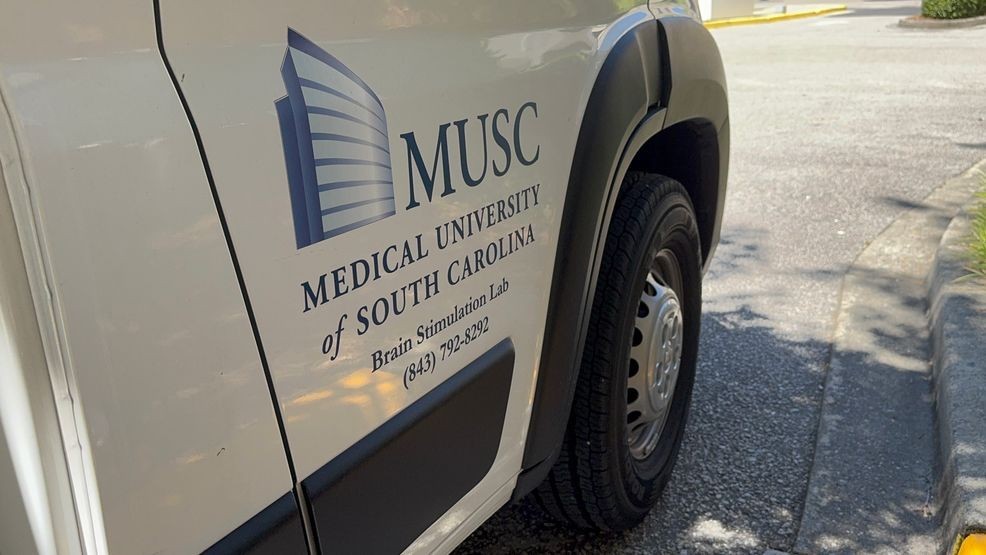CHARLESTON, S.C. (WCIV) — The Medical University of South Carolina (MUSC) is working to make treatment for depression more accessible with its new mobile brain stimulation lab.
Transcranial magnetic stimulation (TMS) is a treatment for depression many people may not know about as it can be difficult for some patients to access.
The treatment is non-invasive, stimulating the pre-frontal cortex, which is the part of the brain that does not work properly with depression.
RELATED: Officials to break ground on new MUSC healthcare facility coming to St. George
“It’s saving lives all the time, but only for people who live and are able to access it,” said MUSC Psychiatrist and Neurologist Dr. Mark George.
George is a pioneer for TMS treatment for depression, playing a role in its FDA approval in 2008. Over the years, he’s been working to make it more accessible for those who may be struggling with other forms of treatment.
“Two thirds of people who are depressed will get help with just medications and talking, but one third of all depressed patients, the meds don’t work,” says George. “So, there are 26,000 people in South Carolina today who have treatment resistant depression that are a candidate for this treatment, and many of them live not in a major city.”
A typical treatment schedule requires a patient to sit in a chair 30 times over six weeks; that means 30 trips to and from downtown Charleston.
“It has a big, what I call a ‘schlep’ factor,” says George. “You got to get up, go to some place, sit in a chair, although the treatment’s only 10 or 20 minutes, you know, driving anywhere these days and getting back. That can be difficult for anybody who’s working a job or two has kids, has elderly parents, or who lives far from Charleston.”
With the new mobile unit, George hopes the treatment will become more accessible.
RELATED: New Roper St. Francis facility to create jobs, boosting local economy and healthcare
George says the donor behind its funding named the van Hope, “She says, with depression one of the things that the illness does is it robs people of hope. And so, she was hoping that this van would give them hope.”
One patient has been treated in the van and George considered her treatment a success.
“We’ve done one patient so far and her depression is gone. She would never have been able to get TMS, with her family responsibilities, she would never have been able to do it. The van was really the only way she could do it, and she was very grateful. We hope to be able to now reach lots of people like her.”
MUSC is currently looking to evaluate if the mobile unit is feasible long term, with hopes of possibly expanding with more vans. Patients within 90 minutes of Charleston are welcome to receive treatment, free of charge.
